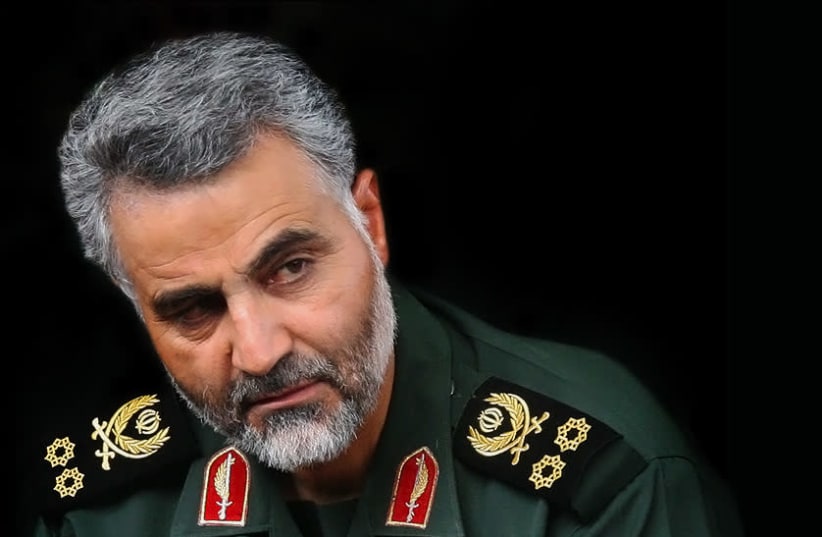According to the Pentagon, Soleimani was actively developing plans to attack American diplomats and service members in Iraq and throughout the region."General Soleimani and his Quds Force were responsible for the deaths of hundreds of American and coalition service members and the wounding of thousands more," the Pentagon claimed, noting that the Iranian leader had orchestrated attacks on coalition bases in Iraq over the last several months, including the attack on December 27, culminating in the death and wounding of additional American and Iraqi personnel."General Soleimani also approved the attacks on the US Embassy in Baghdad that took place this week," the Pentagon added, clarifying that the strike was aimed at deterring future Iranian attack plans. "The United States will continue to take all necessary action to protect our people and our interests wherever they are around the world," the statement concluded.The US embassy in Baghdad urged American citizens to leave Iraq immediately. Dozens of foreign oil company employees with US citizenship in Iraq headed to Basra Airport for evacuation, Reuters reported.The Iraqi Popular Mobilization Forces spokesperson claimed that Israel was also behind the attack, although Israel has made no such statement.Following Soleimani's death, the IRGC called him a martyr: "Honored supreme commander of Islam Soleimani was martyred," read the statement.Shi'ite Popular Mobilization Forces (PMF) described the attack on its Facebook page as a "cowardly US bombing."Iran's Supreme Leader Ayatollah Ali Khamenei warned on Friday that harsh revenge awaits the "criminals" who killed Soleimani, and that the attack will double the motivation of the resistance against the US and Israel.He called for three days of mourning in Iran for the slain military leader.Khamenei took part in a meeting of Iran's National Security Council for the first time since becoming Supreme Leader, according to Al Manar.He appointed Soleimani's deputy, Brig.-Gen. Esmail Ghaani, to replace him as head of the country's Quds Force, Iranian media reported.The force's program "will be unchanged from the time of his predecessor," Khamenei said in a statement published by state media.Former IRGC chief Mohsen Rezaee tweeted in response to the attack that, "vigorous revenge against America" will be pursued following the death of Suleimani."The Revolutionary Guards, the wise Iranian nation and the resistance front across the geographical expanse of the Muslim nation will avenge the blood of this martyr," warned IRGC spokesman Ramezan Sharif. "The joy of the Zionists and Americans will in no time turn into mourning."Iranian Foreign Minister Mohammad Javad Zarif said on Friday that the assassination was, "an extremely dangerous and foolish escalation... The U.S. bears responsibility for all consequences of its rogue adventurism," he said in a post on Twitter.Zarif later said that the killing of Soleimani will only strengthen the resistance in the region, according to Iranian State TV.Supporters of Iranian-backed Iraqi paramilitary groups stormed the US Embassy in Baghdad on Tuesday following US air raids on Sunday against Kataib Hezbollah militia bases, in retaliation for missile attacks that killed a US contractor in northern Iraq last week.Tension between the United States and Iran has ramped up in the region over US economic sanctions hurting the Iranian economy. The two sides have traded blame over attacks on oil installations and militia arms depots, as well as military bases hosting US forces.Reports that Lebanese Hezbollah deputy leader Sheikh Naim Qassem was among those killed were unconfirmed Friday morning. His death was denied by a media outlet affiliated with the group, but an Iranian official told Al Jazeera that Syrian and Lebanese citizens had also been killed in the attack.Soleimani, who led the foreign arm of the Revolutionary Guards and had a key role fighting in Syria and Iraq, acquired celebrity status at home and abroad.He was instrumental in the spread of Iranian influence in the Middle East, which the United States, and Tehran's regional foes Saudi Arabia and Israel, have struggled to keep in check.He had survived several assassination attempts against him by Western, Israeli and Arab agencies over the past two decades.Soleimani's Quds Force, tasked with carrying out operations beyond Iran's borders, shored up support for Syrian President Bashar Assad when he appeared to be close to defeat in the civil war raging since 2011; he also helped militiamen defeat Islamic State in Iraq.Soleimani became head of the Quds Force in 1998, a position in which he kept a low profile for years while strengthening Iran's ties with Hezbollah in Lebanon, Assad’s government and Shi’ite militia groups in Iraq.US Secretary of State Mike Pompeo tweeted a video of Iraqi citizens celebrating Soleimani's death by dancing in the streets.חיסול סולימאני | תמונות רכבו של סולימאני מזירת התקיפה ליד שדה התעופה בבגדאד@MosheBerkovitch pic.twitter.com/9F2oW8BYXP
— כאן חדשות (@kann_news) January 3, 2020
Iraqis — Iraqis — dancing in the street for freedom; thankful that General Soleimani is no more. pic.twitter.com/huFcae3ap4
— Secretary Pompeo (@SecPompeo) January 3, 2020
